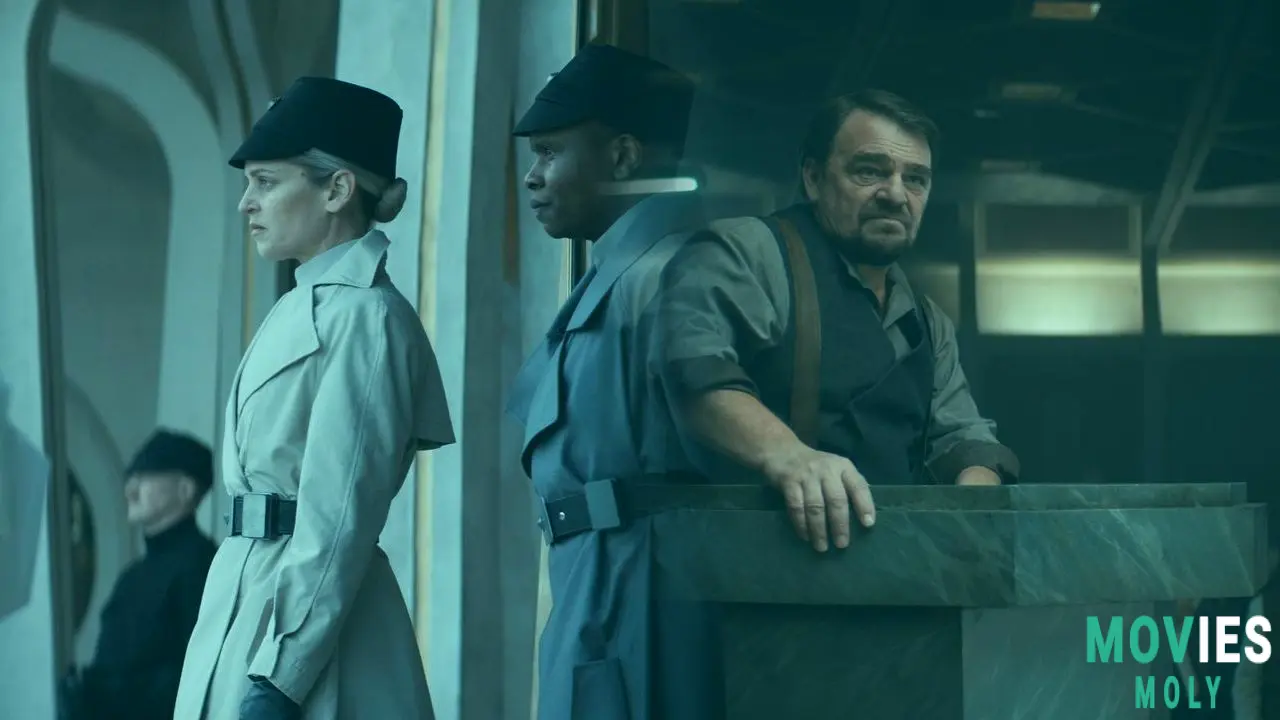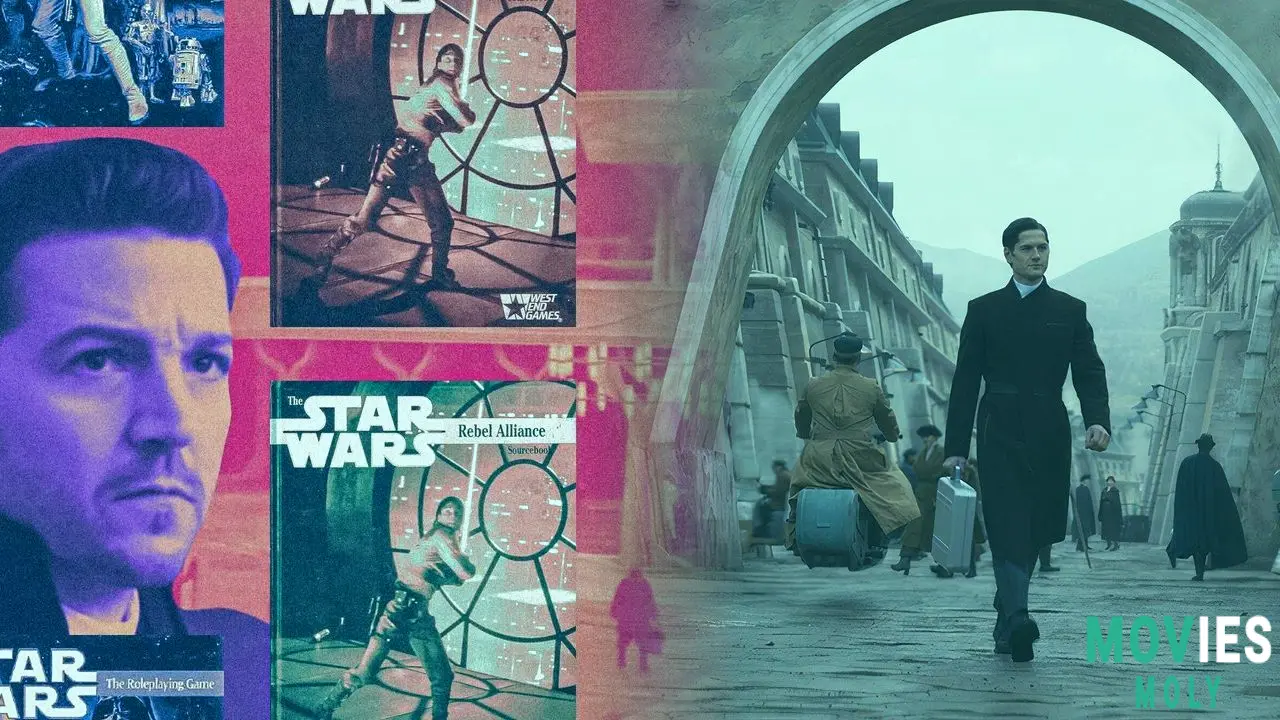With its penultimate episodes now streaming on Disney+, Andor Season 2 pushes the gritty rebellion origin story into its most explosive phase yet. The final three-episode arc, which premieres May 13, promises to deliver the climax the series has been meticulously building toward — but the latest batch of episodes already gives us plenty to unpack. From the devastating Ghorman sequence to Mon Mothma’s defiant break with the Empire, this season is reshaping Star Wars mythology through political realism and emotional weight.
Ghorman Takes Center Stage In A Sequence Of Escalating CrueltyThe Empire’s manipulation of the Ghorman Front resistance has been lurking in the background of Andor’s storytelling, and it finally erupts into a full-blown tragedy. The once-gradual descent into propaganda, misinformation, and false-flag tactics plays out in brutal real time across three episodes. What began as a slow burn with Dedra Meero (Denise Gough) and Syril Karn (Kyle Soller) infiltrating the rebels has become a masterclass in how authoritarian regimes manufacture justification for oppression.
Andor doesn’t just show the setup—it makes viewers live through it. The Ghorman Front is coaxed into reckless action by Syril, who’s been manipulated into believing he’s controlling the narrative. The Empire frames the rebels for an attack they didn’t commit. An unarmed protest is met with lethal force. The sequence in the city square, where citizens defiantly sing the Ghorman anthem, echoes moments from history and film—Casablanca’s “La Marseillaise” being the most obvious—but with a darker twist. This time, the free speech is met with machine gun fire.
It’s a grim moment of inevitability. The Empire isn’t interested in control—it wants annihilation. And as one Imperial officer chillingly notes, public perception isn’t enough. They need total dominance. The massacre isn’t just a plot point; it’s a statement. One that reverberates through the season’s final episodes.
Mon Mothma’s Senate Speech Gives The Rebellion A Voice—and A Vision

After the Ghorman massacre, Mon Mothma (Genevieve O’Reilly) delivers a speech that breaks free of its Rebel-canon constraints and stands on its own as a defining moment for the character—and the series. Calling out the Empire for unprovoked genocide, she abandons any pretense of loyalty and steps fully into her role as a Rebellion leader. Her words about the “death of truth” and the danger of letting “monsters scream the loudest” aren’t just aimed at Palpatine—they’re aimed at anyone who lets power go unchecked.
Andor’s creators knowingly diverged from the established canon of Star Wars Rebels to give Mon Mothma this full-throated moment. Tony Gilroy called it “hijacking canon,” but in the best way possible. This isn’t about contradicting old material—it’s about giving a character and a movement the emotional and rhetorical punch they deserve. For O’Reilly, who’s played Mon for two decades, this was more than fan service. It was a chance to fully embody the leader she’s spent years portraying.
The added symbolism of Mon shedding her Senate robe before a violent confrontation—instead donning Cassian’s jacket for camouflage—is small but powerful. It’s the moment she stops playing the political game and starts fighting for survival. And it happens not a second too soon.
Cassian Andor’s Journey Hits A Tense Crossroads With K2SO’s Return

After years of covert operations and moral compromises, Cassian (Diego Luna) seems worn down. His partnership with Bix (Adria Arjona) offers a faint hope of escape, a dream of living quietly away from the storm he helped ignite. But the Rebel movement is evolving, and Luthen (Stellan Skarsgård) isn’t interested in letting Cassian walk away. The Ghorman mission becomes his “one last job,” but as usual with Cassian, nothing ends up being that simple.
The rescue of the decommissioned KX security droid from an Imperial transport is a welcome throwback to Rogue One. Andor manages to reintroduce K2SO without it feeling like fan service. Alan Tudyk’s familiar voice brings a bit of levity to an otherwise grim sequence, and the droid’s reprogramming by Cassian adds a new layer to the dynamic we've come to love.
Still, the emotional beats with Bix falter slightly. Her decision to abandon Cassian so he’ll stay and fight doesn’t land with the impact it should, largely because the show hasn’t given her enough agency beyond suffering. It’s a minor misstep in a series that usually trusts its audience to fill in the emotional gaps—but it’s worth noting as the final episodes loom.
Andor Season 2 Turns Political Tragedy Into Rebellion Origin Myth

What makes Andor’s second season stand out isn’t just the action or the intrigue—it’s how grounded it is in the mechanics of power, oppression, and resistance. The Ghorman arc could have been drawn out, but the creators tightened the narrative and gave us a three-episode punch to the gut. The Empire doesn’t just crush dissent; it fabricates it. It weaponizes perception and turns truth into propaganda. This is the kind of storytelling that Star Wars rarely embraces—and Andor makes it central.
Mon Mothma’s public break with the Empire, Cassian’s reluctant return to the fight, and the bloody turning point on Ghorman—they’re all steps toward a Rebellion that feels real, messy, and inevitable. There’s no hope without sacrifice, and Andor isn’t afraid to show what that cost looks like.
With the final three episodes dropping May 13, we’re about to see Cassian take the last steps toward the man he is in Rogue One. But after season two’s explosive middle stretch, it’s clear that this journey has never been more about the people around him—and the truth they’re willing to fight for.




